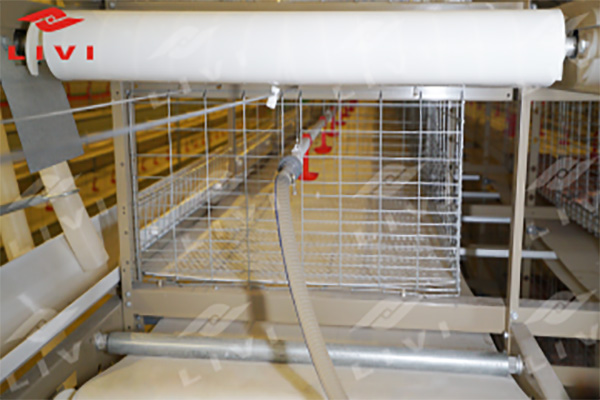Effective Fine Management Methods for Uganda Chicken Farms
Time : 2025-06-24
Uganda, known for its rich agricultural heritage, has been increasingly focusing on the poultry industry as a vital component of its economic growth. Among the various aspects of poultry farming, fine management methods play a crucial role in ensuring the health, productivity, and sustainability of chicken farms. This article delves into the best fine management methods for Uganda chicken farms, integrating professional knowledge of poultry equipment and techniques.
Introduction to Uganda Chicken Farming
Uganda’s poultry industry has seen significant development over the years, with both commercial and backyard farms contributing to the country’s food security. The demand for poultry products has been growing, and efficient management practices are essential to meet this demand sustainably.
1. Biosecurity Measures
Biosecurity is the cornerstone of any successful chicken farm. It involves implementing measures to prevent the introduction and spread of diseases. Here are some key biosecurity practices:
1.1 Clean and Disinfect Facilities
Regular cleaning and disinfection of farm buildings, equipment, and transport vehicles are crucial to prevent disease transmission. The use of high-quality disinfectants that are effective against a wide range of pathogens is recommended.
1.2 Control Access
Limiting access to the farm by unauthorized personnel and vehicles helps reduce the risk of disease introduction. Only essential staff should be allowed entry, and they should be trained in biosecurity protocols.
1.3 Health Monitoring
Regular health checks and monitoring of the flock are essential for early detection of diseases. This includes monitoring feed consumption, egg production, and general appearance of the birds.
2. Environmental Management
The environment plays a critical role in chicken health and productivity. Here are some environmental management practices:
2.1 Ventilation
Proper ventilation is essential to maintain a healthy environment in chicken houses. The system should provide fresh air while minimizing draughts and heat stress.
2.2 Temperature Control
Maintaining the right temperature is crucial for the health and growth of chickens. In Uganda, with its diverse climate, temperature control can be challenging but is essential for optimal performance.
2.3 Manure Management
Proper manure management is vital to prevent disease spread and reduce environmental pollution. Composting manure is an effective way to dispose of it while recycling nutrients.
3. Feeding and Nutrition
A balanced diet is crucial for the health and productivity of chickens. Here are some feeding and nutrition management practices:
3.1 Quality Feed
Using high-quality feed is essential to ensure the birds receive all the necessary nutrients. In Uganda, locally produced feeds should be of high quality to avoid the need for expensive imported feed.
3.2 Feed Management
Proper feed management includes preventing feed waste, controlling feed access, and ensuring that the feed is stored in a dry, cool environment to prevent spoilage.
3.3 Nutritional Supplements
Supplementing the diet with vitamins, minerals, and amino acids can improve bird health and performance, especially in areas where the natural diet is limited.
4. Egg and Meat Production
Optimizing egg and meat production requires specific management practices:
4.1 Breeding Programs
Implementing a well-planned breeding program can improve the genetic quality of the flock, leading to increased productivity and better meat quality.
4.2 Ageing Management
Managing the age of the flock is important to ensure that the birds are productive and not prone to diseases. Regular culling of old birds and selective breeding can help maintain the health and productivity of the flock.
5. Poultry Equipment and Technology
Utilizing modern poultry equipment and technology can significantly improve farm efficiency and productivity:
5.1 Feeders and Drinkers
Automated feeders and drinkers ensure that the birds have constant access to food and water, reducing feed waste and the risk of dehydration.
5.2 Environmental Control Systems
Modern environmental control systems can help maintain optimal temperature, humidity, and air quality in chicken houses, improving bird health and productivity.
5.3 Disease Monitoring Tools
The use of diagnostic tools and equipment can facilitate early detection and treatment of diseases, minimizing their impact on the flock.
Conclusion
Effective fine management methods are essential for the success of Uganda chicken farms. By implementing biosecurity measures, managing the environment, optimizing feeding and nutrition, and utilizing modern poultry equipment, farmers can ensure healthy, productive flocks. Continuous education and training of farm staff, along with staying informed about the latest research and technology, will further enhance the sustainability and profitability of poultry farming in Uganda.












